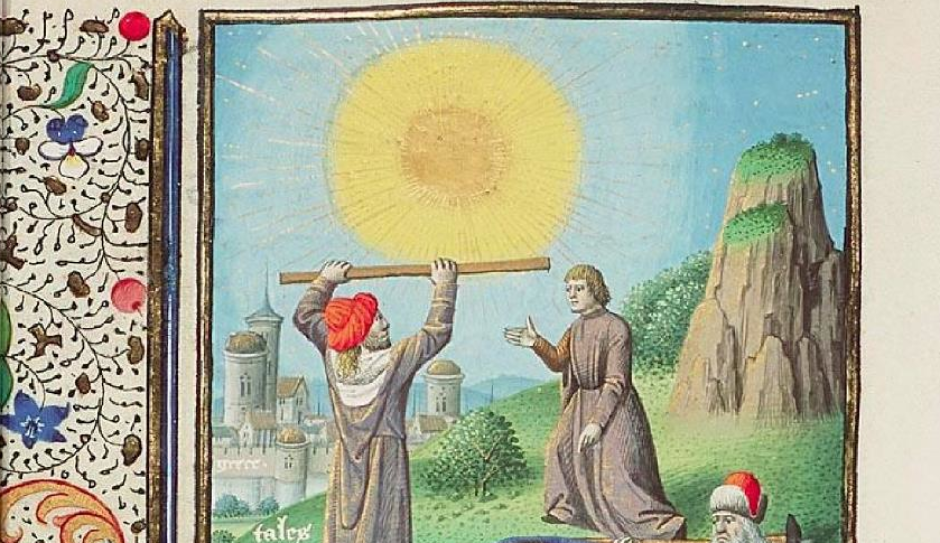The first volumes in this series look like conventional monographs. Why don’t you have them printed by an established publisher?
There were three reasons for this decision. Because these studies focus on specialized topics, the number of readers, at least in the short term, is likely to be small. The narrow audience means that a print run would also be small and the individual volumes prohibitively expensive – a factor that would limit the potential audience still further. As digital publications they will, obviously, be available at no cost to anyone who has an internet connection. My hope is that the readers in my intended audience will find these volumes convenient to access, and that through the magic of search engines they will find additional readers in unexpected places.
A second reason I chose online publication has to do with the scope of the research project from which these publications derive. I have draft manuscripts for nine monographs on early Greek cosmology and astronomy, each of which builds on the foundations laid by the previous members of the series. Readers who want to follow my presentation will need access to all nine volumes. Even if a publisher agreed to publish all nine, there is no guarantee that libraries would follow suit and purchase the full set; lack of access to the earlier volumes would make the arguments presented in the later ones harder to follow. Publishing the volumes online in a single place gets around this problem.
Third, I anticipate that feedback will make revised editions a desideratum within the near future. (Compare the new Loeb edition of Early Greek Philosophy by Glenn Most and André Laks: published last year, in 2017, it has already generated a large list of errata which the editors, to their great credit, have published online.) Most publishers will only print revised editions of works once they have achieved a certain amount of commercial success. Publishing in digital format and under my own auspices will allow me to make a second edition as soon as the time is right.
If your work is self-published, that means it has not gone through double-blind peer review. What will guarantee quality?
All manuscripts will have passed through open peer review, which means that each text will be read by two or more specialists in the field, with their feedback being taken into account in the usual way; I will also invite comments on forums like academia.edu and during oral presentations of the material. I have devoted extra attention to editing and copy-editing to make sure the text is as ‘clean’ as possible, assisted by a second pair of eyes whenever feasible.
Print items have a very long shelf life, while digital formats can grow obsolete quite rapidly. How do you address the problem of long-term archiving?
My first step will be to deposit copies in multiple online archives: sites such as archive.org, Hathi Trust, and Google books are likely to survive for a long time with continuously upgraded file formats. Just to be on the safe side, it is my plan to make a limited print edition for the express purpose of long-term preservation after all the volumes are completed.
How should these works be cited and classified?
As digital books, retrieved from cosmographia.net. The works will be copyrighted and made available for reuse with proper attribution under a Creative Commons Attribution-Share Alike license (the same license used by Wikipedia).
Will this site be devoted only to your own work, or will it also publish works by other scholars?
I welcome proposals from other scholars. Proposed projects must fit the criteria outlined on the ‘Description’ page, and make a compelling and original contribution to the field. At this time I will only accept proposals from scholars who have already published at least one monograph at an established press – because this is a new endeavor, I feel it would be too risky, career-wise, for junior scholars to publish their work here.
What arguments do you advance in the books?
The burden of the series is to show that Greek natural philosophers revised lore and ideas from neighboring cultures to a much greater degree than has hitherto been acknowledged. Recognizing this borrowing in turn allows us to perceive more clearly the original contributions of the Hellenic thinkers, who were particularly interested in paradoxes, cycles, visual representations, and questions about causality and substance.
The first two volumes do not touch directly on the subject of cosmology and astral lore per se but instead lay the groundwork for arguments made in later works. Their role is to sort out the conflicting evidence about the dates of the earliest Greek cultural authorities.
The first volume gathers and interprets all the relevant information for the chronology of the first Greek philosophers. Its most important result is that Anaximander and Anaximenes date about 50 and 60 years later, respectively, than the accepted modern chronology would place them; the lifetime of Pythagoras is also pushed down by about two decades.
